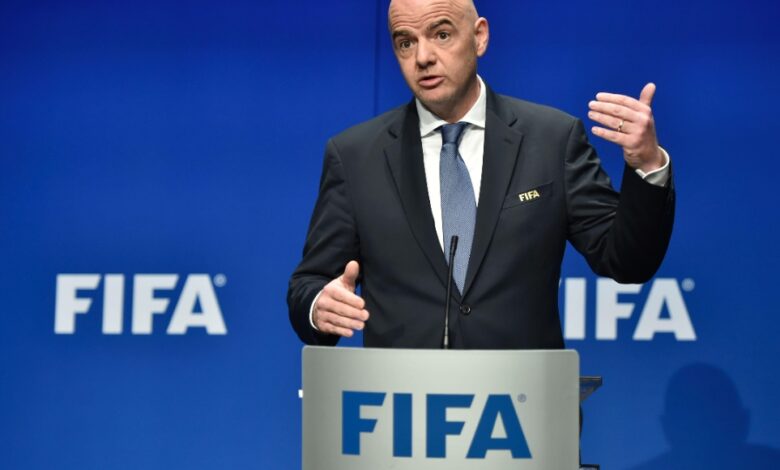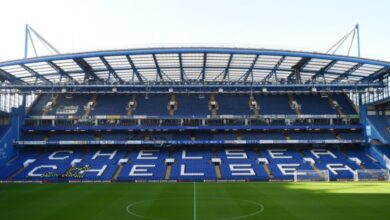🟡⚫SHOCKING NEWS: The FIFA President has announced the list of clubs participating in the FIFA Club World Cup 2029. Only one team from England will take part – and the revealed name has shocked everyone. Even head coach Enzo Maresca was furious and blasted FIFA with nine extremely harsh words

In an astonishing turn of events that has sent shockwaves reverberating throughout the international football community, FIFA President Gianni Infantino has officially disclosed the full roster of clubs selected to compete in the much-anticipated FIFA Club World Cup 2029. This announcement, which many expected to showcase a diverse and representative array of elite football clubs, has instead sparked intense debate and widespread uproar due to one glaring detail: only a single football club from England has been chosen to participate in the global tournament.
The revelation has left fans, analysts, and even top-level coaches in utter disbelief. Contrary to what many had predicted, Manchester City—a club widely regarded as one of Europe’s most dominant forces in recent years—has not been included in the list of participants. This exclusion is particularly puzzling given City’s consistent domestic success and strong showings in European competitions, including multiple deep runs in the UEFA Champions League.
Instead, the lone English representative at the tournament will be Arsenal Football Club. While Arsenal has certainly re-emerged as a major force under manager Mikel Arteta, the choice has ignited a firestorm of controversy. Critics have questioned the legitimacy of FIFA’s selection process, arguing that it lacks both transparency and fairness.
One of the most outspoken critics of the decision has been Chelsea’s head coach, Enzo Maresca. Speaking at a press conference shortly after the announcement, Maresca was visibly agitated and did not mince words. In a fiery statement that quickly spread across social media platforms, the Italian manager declared:
> “This is corruption, injustice, favoritism – football deserves much better!”
Maresca’s remarks echoed the frustrations of many Chelsea supporters who feel their club has been unfairly sidelined. Chelsea, who have seen a significant resurgence in form and competitiveness on the European stage, were considered strong contenders for a spot. Maresca further questioned the opaque nature of the criteria used to determine qualification, demanding more clarity and consistency from football’s governing body.
FIFA, in an attempt to justify its selections, released a statement explaining that the criteria for inclusion in the 2029 edition were based on a mixture of historic performances in continental competitions, club ranking coefficients, and overall sporting merit. However, many fans and football experts argue that these metrics appear selectively applied, with some suggesting that factors such as commercial appeal, brand recognition, and fanbase size may have played an unspoken role in shaping the final list.
The decision to prioritize Arsenal, a club that—despite its storied history—has yet to secure a UEFA Champions League title, over clubs like Manchester City or Chelsea, both of whom boast stronger recent records in Europe, has fueled speculation that FIFA’s motivations may not be purely sporting.
Beyond England, the 2029 FIFA Club World Cup is set to feature 32 clubs from every continent, creating a diverse field that includes titans such as Real Madrid, Bayern Munich, Flamengo, and Al Ahly. The tournament will be hosted by the United States, with games scheduled to take place in major metropolitan hubs like Los Angeles, Miami, and New York City. This American backdrop is expected to further boost the tournament’s global visibility and commercial reach.
This controversial selection process has reignited long-standing debates about FIFA’s leadership, the influence of major footballing institutions, and the increasing commercialisation of the sport. As the countdown to the 2029 tournament begins, discussions around these issues—and particularly the exclusion of high-performing English clubs—are expected to remain at the forefront of football discourse for the foreseeable future.




